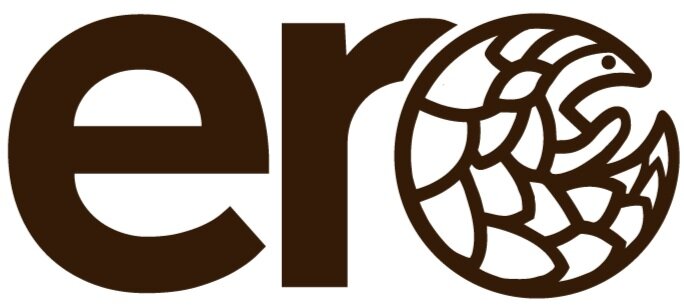Green Echoes #21: Wildlife Traffickers vs. Covid19
Dear friends and supporters,
Welcome to Green Echoes, a newsletter from the Environmental Reporting Collective that highlights key investigative stories, data sources, funding, reporting and training opportunities and our projects from across Asia.
We have a special issue for you this week, featuring part of an investigation that we conducted with MDI and with support from Internews’ Earth Journalism Network. It’s by Trang Bui and Lam Quan and focuses on whether or not the illegal wildlife trade in the hotspot of Vietnam will come back stronger after Covid-19, with the reporters speaking with traffickers throughout 2020 and 2021, and analyzing 10 years’ worth of data.
Traffickers v. Covid-19
Even as Vietnam faced its fourth wave of Covid-19 in January 2021, visitors to Dien Chau district could still find restaurants openly advertising all kinds of “exotic” meats, from rats and cats, to rabbits and monitor lizards.
What’s not openly advertised, yet even more famous, is Dien Chau’s dirty open secret – tiger products, including meat, bone wine, and glue.
“Hundreds of houses are farming tigers here,” said Mr L, a 45-year-old secondary school teacher who just happens to also be an illegal wildlife broker, while showing our undercover journalists around Dien Chau in January. “But they can’t export the tigers anywhere because of Covid-19.”
Vietnam has been a major destination and transit point for the global wildlife trafficking trade. Between 2003 and 2019, the country has been involved in the deaths of at least 15,779 elephants, 610 rhinoceroses, 228 tigers and 65,510 pangolins, according to the Environmental Investigation Agency (EIA).
Given that scientists have widely considered Covid-19 a zoonotic disease (transmitted from animals to humans, or vice-versa), which may have emerged due to wildlife trafficking, both Vietnam and China – another major market for the illegal wildlife trade – have taken steps to tackle the issue. In February 2020, the Chinese government was compelled to ban the consumption of wild meat, and Vietnam followed suit in July 2020 with a Prime Minister’s directive to prohibit all wildlife imports.
Yet, questions remain whether two of the world’s biggest consumers of illegal wildlife can curb their appetite for exotic meats, even after such a global crisis.
As part of a collaborative investigation between the Environmental Reporting Collective (ERC) and the Vietnam-based Centre for Media and Development Initiatives (MDI), journalists went undercover as potential buyers to speak with four wildlife traders in early 2021, and analysed 10 years’ worth of data from nearly 300 wildlife seizure cases in Vietnam.
The journalists found a trade that is far from collapsing. Traders like Mr L and his associates are simply biding their time, pivoting to local and online markets while their goods remain grounded.
“Everything is still normal, nothing is curbed,” Mr L replied, confidently, when we asked if he could still supply tiger, rhino horns or ivory products within the country.
Education for Nature Vietnam (ENV), a local NGO which maintains a hotline for citizens to report wildlife crimes, recorded 2,907 wildlife violations in 2020, almost double the previous year. Without an aggressive crackdown on the trade while it is at its most vulnerable ever, experts fear traffickers would return stronger and more resilient.
We analysed and investigated the four most trafficked wildlife commodities in Vietnam – tigers, ivory, rhino horns and turtles – each of them a trade with its own complexities. Here’s what we found.
Read the full investigation, with graphics, photos, and visualization, on our website. For editors and media outlets, this investigation is available for republication – respond to this email if you’re interested.
Data, Resources and Training
Engage Media is accepting applications for its Video for Change Environmental Impact Lab, which is aimed at strengthening the capacity of filmmakers to create impact with their work (Deadline 18 April).
For science journalists in Southeast Asia: @monsoon_podcast wants to feature you, your work, and your knowledge, to showcase the science stories of the region. Email monsoonpodcast@gmail.com.
For journalists focusing or reporting on oceans issues: Earth Journalism Network is launching an Oceans Journalist Network email list, aimed to serve as venue for discussion and a place where journalists can share stories, reports, analyses and events. Join here.
The Pulitzer Center for Crisis Reporting is holding their annual conference fully virtually this year. It’s called Environment (Re)defined and takes places April 20-23, and focuses on under-reported stories, collaborations, and the future of producing environmental reporting and engaging audiences. Best of all, its free!
For readers in Japan or Indonesia – Digital Tools for Journalists is organizing two workshops later this months.
17 April 2021: Digital Tools for Journalists. (Japanese) – Register here
24 April 2021: Fact-checking and Source Verification. (Bahasa Indonesia) – Register here
And for readers in India – Earth Journalism Network is offering story grants on renewable energy. Apply here (deadline 30 April).
—
That’s all for this week – do let us know, by responding to this email, if we missed anything.
Stay safe and healthy,
Nithin Coca
